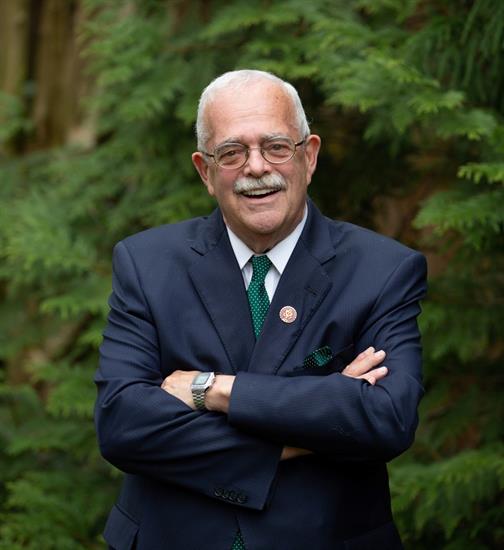PWCS Alumni Discuss Race & Education Within the School System
Recently the podcast PWColors hosted a virtual dialogue between Prince William County School (PWCS) alumni of color to discuss how race and ethnicity played into their time in the county school system. The purpose of the discussion was to highlight the lived experiences of these individuals and to elevate their individual truths in an effort to fight for a most just, inclusive, and equitable educational system.
PWCS is no stranger to criticism and controversy, especially as it relates to issues of race and ethnicity. While frequently parading itself as a “minority-majority” school system, it has struggled to develop a coherent anti-racism policy, and cultural-sensitivity trainings have proven to be less than effective in improving the experiences of students of color, thus showing that the county has been too comfortable with its (alarming) statistics. Recently, PWCS was revealed to have held the top spot in the state with “the largest number of students charged for school-based disorderly conduct from 2016 to 2018.” If this statistic was not shocking enough by itself, the fact that “Black students accounted for half of all school-based disorderly conduct charges in Prince William County, despite making up only 20% of the school system’s total population” should have raised multiple alarm bells across the district. Unfortunately, it didn’t, and that too is not surprising since the county has long been aware of its disproportionate policing of Black and Latino students with suspension and expulsion rates being 2-3 times higher than for White students.
The experiences shared by the participants who graduated from Woodbridge, Hylton, Freedom, Unity Reed, and Forest Park only further highlighted the fact that Prince William County Schools has a race problem, and concrete steps to address it are still not in sight. And while the stories shared by the participants were anecdotal, they all underscored a common theme: PWCS staff is currently ill-equipped to provide services to its roughly 90,000 students, most of whom identify as racial and ethnic minorities. Danielle, a graduate from 2011, who now holds a Ph.D. in developmental psychology, shared her experiences of being targeted by administration and school security for being a suspected gang member and believes that much of it had to do with stereotypes of Central American youth. This was a sentiment echoed by other participants as well; Alex, a Woodbridge High School graduate from the same time period, called into question the expulsion of his brother from school for a first-time offense he saw all too often committed by other students as well.
And while one can argue that the school division has made progress in the 10 years since these specific incidences took place, graduates from 2019 and 2020 shared similar experiences and spoke of more systemic issues that often stemmed from a lack of representation among instructional staff and administration. Zahra, a 2019 Unity Reed graduate, shared that “if you are a teacher or a principal, you have power and privilege because of your position so if you are not using your power and privilege in the right way you are impacting these students in the long term, especially the students who are already oppressed by the system, the students who never see somebody like them in a higher position.”
The 2018-2019 Equity Scorecard shows that 75% of instructional personnel and 71% of administrators in PWCS are non-minority whereas 71% percent of students are identified as minorities. This disparity is not unnoticed by the students that it impacts the most and, again, progress has been slow in recent years with only a 1% yearly increase in minority teachers and no change in the percent of minority administrators from 2016-2019.
While representation is crucial in creating a better educational experience for local students, it is not the only factor and definitely should not be used to burden minority teachers and students to educate the rest of us about racism and empathy. Zahra shared that “you need to be careful of not putting all the burden on teachers and students to educate you. Just because you hired 3 teachers of color doesn’t mean your whole math department should be looking up to them in order to be educated (about race)… It is your job. Students of color and teachers of color are not getting paid to solve the racism in your classroom. Therefore, it is very important for us to learn to educate ourselves and don’t put the burden on other people.”
Participants also called for a critical look at the school curriculum, reformative justice, and access to mental health resources among other solutions. The youth are the largest and most important stakeholders in our educational system but too often their voices are absent from these discussions. It is time to provide our students with platforms to voice their truths and to listen to them as we chart the future of the school division.
The full conversation, along with other discussions on education and local government, can be accessed via the PWColors podcast on Spotify, Apple podcasts, and Podbean. If you would like more information, please click on the following link.
PWColors is a podcast centered on local politics and culture in Prince William County and aimed at increasing resident engagement and fostering a greater sense of community.



